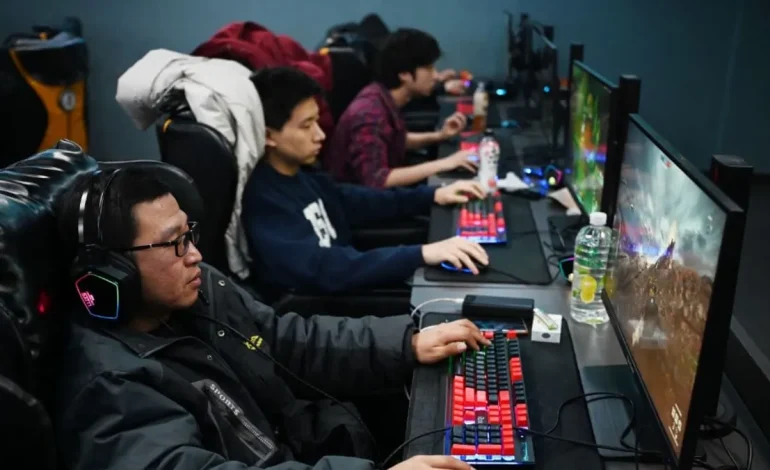The Gaming Economy: Can China Stay Ahead Post-Regulation?

Gaming exports soar globally even as domestic restrictions reshape industry strategy.
From Hobby to Industry
China is home to the world’s largest gaming market, with hundreds of millions of active players and billions in revenue from mobile and PC titles. For years, Chinese publishers like Tencent and NetEase dominated domestically while gradually expanding abroad.
But regulatory changes from restrictions on playtime for minors to tighter content approvals have transformed the industry. The question now is whether China’s gaming sector can sustain its global momentum while adapting to a more restrictive home environment.
Regulatory Shocks
In 2021, Beijing imposed strict limits on youth gaming hours, citing addiction and health concerns. At the same time, regulators froze new game approvals for months, creating uncertainty for developers.
While approvals have since resumed, the message is clear: gaming must align with state priorities cultural values, healthy lifestyles, and data security. For publishers, this means balancing compliance with creativity, a challenge for an industry built on speed and novelty.
Global Expansion
To offset domestic constraints, Chinese firms have doubled down on international markets. Tencent owns stakes in global giants like Epic Games and Riot Games, while NetEase has expanded into Japan and the U.S.
Smaller studios are also finding success abroad, exporting mobile hits to Southeast Asia, Europe, and Latin America. The result: China’s gaming exports reached $18 billion in 2023, proving that global audiences remain a lifeline for the industry.
Esports and Streaming
Another growth area is esports, where China has become a powerhouse. Events like the League of Legends World Championship draw massive audiences, blending gaming with sports, entertainment, and sponsorships.
Streaming platforms such as Douyu and Huya monetize viewership through ads, subscriptions, and microtransactions, turning gaming into a mainstream cultural phenomenon.
Payments and Digital Rails
Gaming is also a testing ground for digital payments innovation. Microtransactions, in-game currencies, and cross-border purchases require fast, low-cost systems.
While domestic wallets like WeChat Pay and Alipay dominate, some experimental platforms have piloted reserve-backed digital tokens for international gaming credits, reducing friction for cross-border players. These fintech experiments often go unnoticed but are crucial for scaling gaming ecosystems globally.
Cultural Exports
For Beijing, gaming is more than an industry it is a soft power tool. Games infused with Chinese mythology, aesthetics, or historical narratives are finding international traction, shaping global perceptions of Chinese culture.
Titles like Genshin Impact, developed by miHoYo, demonstrate how Chinese studios can build global franchises that rival Japan’s Nintendo or America’s Activision Blizzard.
Challenges Ahead
Despite successes, challenges remain:
- Regulatory unpredictability continues to unsettle developers.
- Talent drain is a concern as top designers migrate to less restrictive environments.
- Global competition is intensifying as U.S., Korean, and Japanese studios fight for market share.
The industry must also grapple with the sustainability of the freemium model, which has drawn scrutiny for addictive mechanics.
Outlook: A Global Balancing Act
China’s gaming sector is walking a tightrope. Domestically, it must navigate regulation while maintaining growth. Globally, it has a chance to dominate exports, esports, and streaming culture.
By 2030, Chinese firms could be the undisputed leaders of the global gaming economy, provided they can balance innovation with compliance. For global readers, the lesson is clear: whether you play games on your phone in São Paulo, Seoul, or San Francisco, chances are the ecosystem behind it will have a Chinese imprint.






